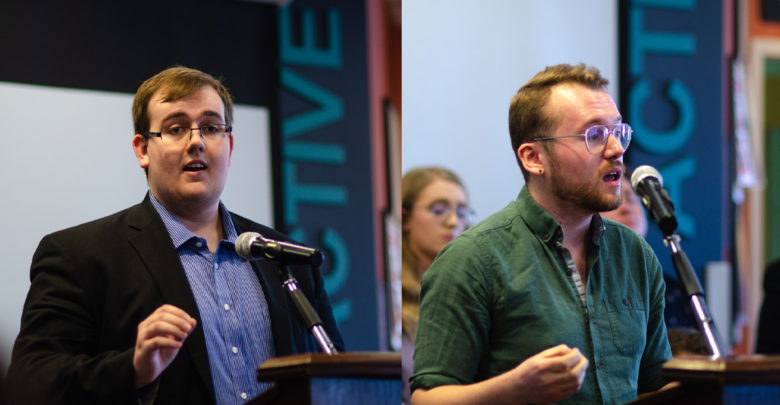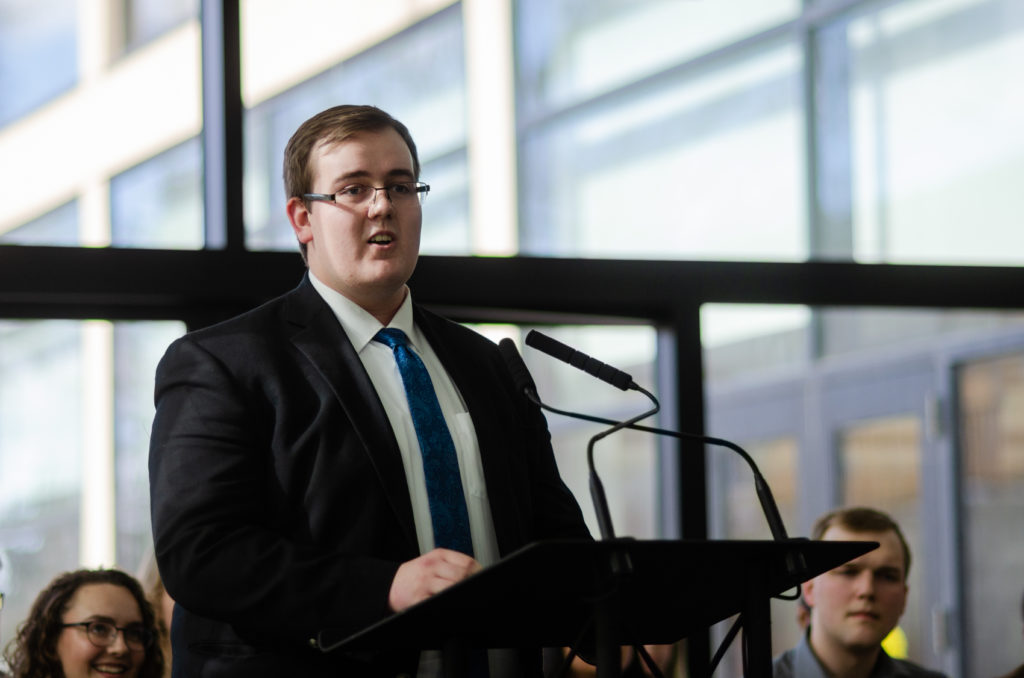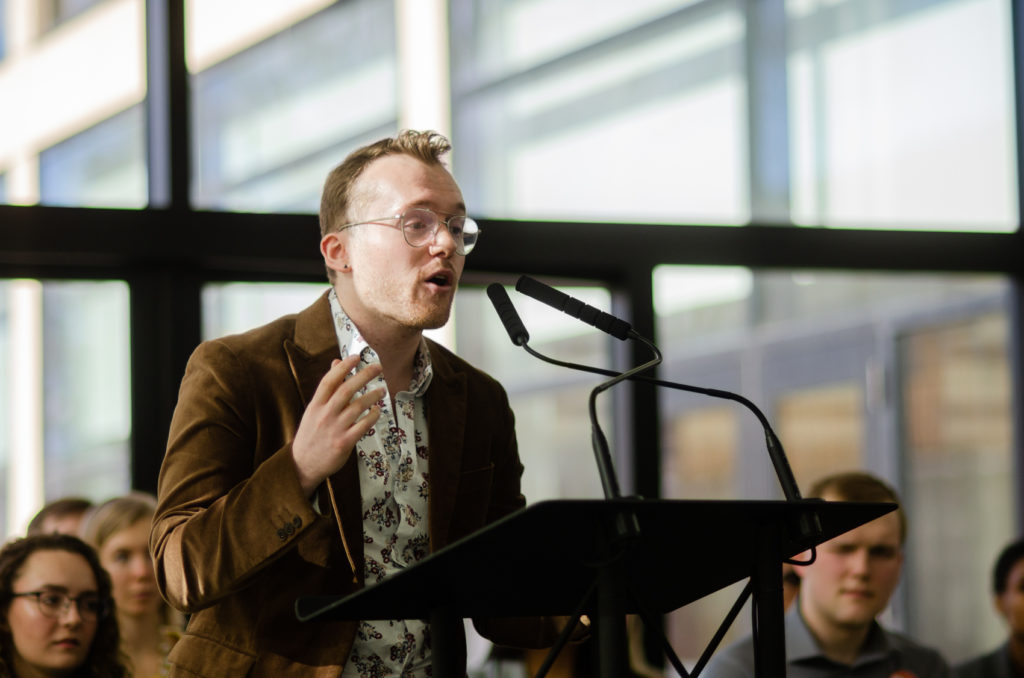Bite the Ballot: Vice-President (Academic)
How should the student body vote, and how will they?
 Helen Zhang
Helen ZhangAfter an uncontested vice-president (academic) race last year, students now have a choice between two passionate candidates. They are the individual-centric Eric Einarson, and the committee-focused David Draper. But who will — and should — win the vote?

Eric Einarson
On the surface, Einarson’s 21-page “E4Everyone” platform appears to be written more for a shareholder than a student. Some of the points could have definitely been scaled down, but it’s simple to read, and accessible for students.
The document is broken down into three parts: financial accessibility, empowering student governance, and success beyond the classroom.
The focus on open educational resources (OER) looks very promising. Einarson’s platform is built on the backbone of accommodating the needs of as many students as possible. Plans to increase the amount of SALUTE awards would continue to incentivize teachers to aid in the provision of OERs. This would be extremely beneficial to students, should it come to pass. During the campaign trail, Einarson effectively addressed concerns about the feasibility of these points, particularly during the Myer Horowitz forum, which should be encouraging.
Overall, Einarson’s points on student governance check off all the boxes. Based on the priorities he focused on during the election forums, looking flashy is not the main aspect of his campaign; instead Eric has emphasized accommodating for the individual needs of students, as well as methods of keeping the SU and academic committees accountable.
When it comes to plans for increasing interaction with students outside of classrooms, Einarson intends on improving support services and work-integrated learning opportunities. The revamping of academic advisors is a strong point in his platform, but one that would require a lot of advocacy with the Academic Standards Committee.

David Draper
Draper’s platform is much more to-the-point, and dives quickly into his ideas. This is significantly more reader-friendly for students.
Interestingly enough, David’s document is also divided into three: making university more affordable, advocating for student needs, and revitalizing the student movement on the General Faculties Council.
David’s points on affordability mostly echo what has been said by Eric, but since Draper did not dedicate as much time to these goals as was given to the rest of his platform, it was a detriment to his campaign.
Throughout his campaign, David has spoken extensively about banning weekend midterms. While this may be an issue for some students on campus, it should not be higher on the list of priorities than reducing barriers to representation.
The final part of Draper’s campaign is in regard to reshaping the General Faculties Council (GFC), along with “lead[ing] an effective and coordinated student caucus.” This includes filling the positions currently vacant. Not every student will take to heart Draper’s long-winded message about the GFC. Whether by sitting on committees or through hands-on work, there is a vital need to address what is currently lacking in terms of services for students.
Who will win, and who should win?
One of the common takeaways from this year’s vice-president (academic) race is the significance of delivering new ideas. While Draper’s platform is clear and concise, Einarson seems more relatable to students. It is important to mention that Einarson likely also has the edge with Campus Saint-Jean students, due to his AUFSJ background. Even though it will be close, I think Einarson will end up on top.
As for who should win, that is a more difficult matter. Either candidate would be able to do great things, that’s for certain. Students should vote based on which approach to governance they think will serve them better. I believe it is the time to “break out of the board room” and tread new ground. Einarson has my vote, and he should have yours too.




